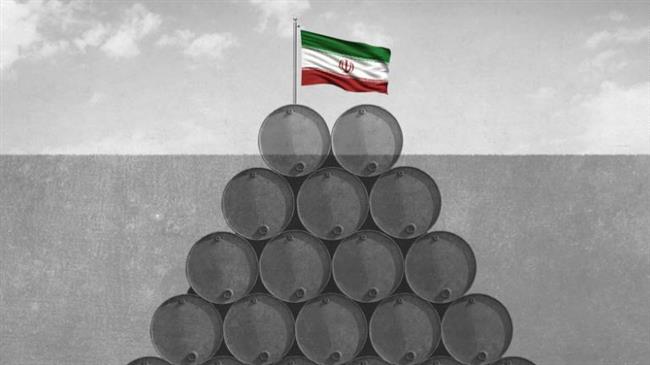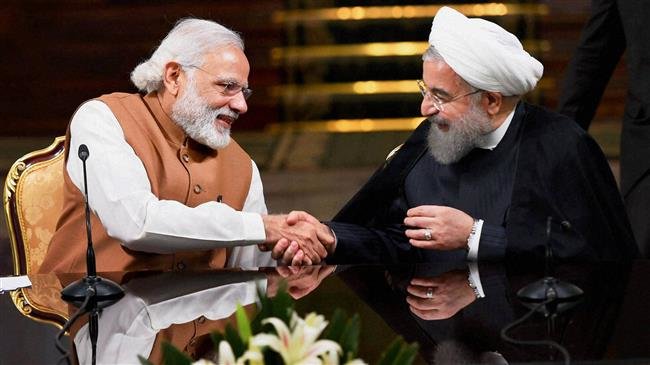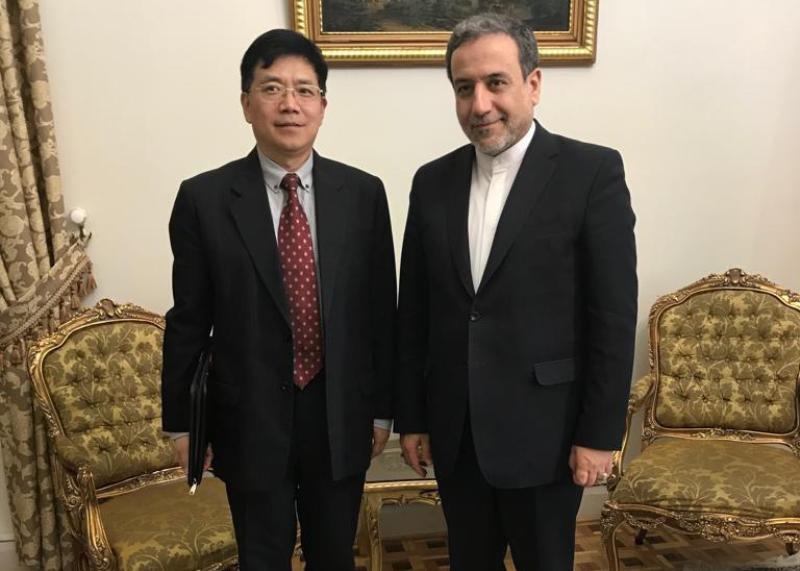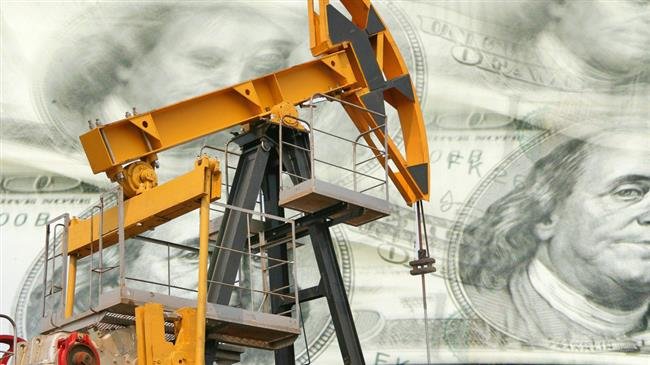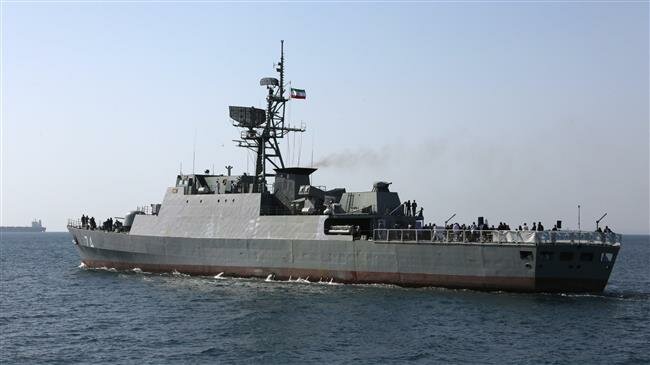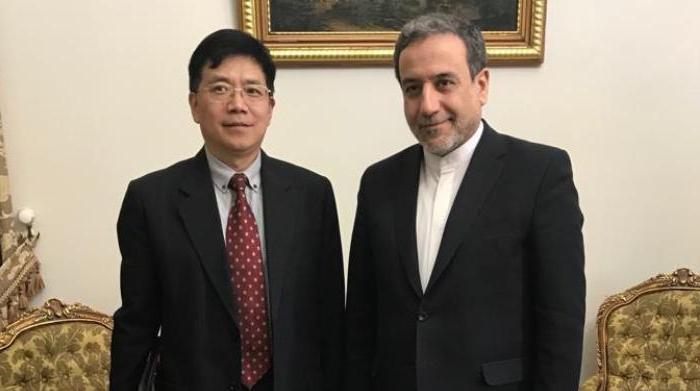US officials are working behind the scenes to pressure China into halting all its oil and condensate imports from Iran, oil pricing agency S&P Global Platts reports.
Publish dateTuesday 14 January 2020 - 17:46
Story Code : 200680
The officials, speaking to the agency, claimed that China’s imports of Iranian oil and condensate stood at 200,000 barrels per day which Washington wanted to eliminate.
The Trump administration has pledged to bring Iran's oil exports down to zero, but the shipments have continued to reach major customers, especially in Asia.
"Just because we haven't seen sanctions rain down on shippers and importers and the independent refiners moving that last 200,000 barrels per day yet, doesn't mean it's not coming," Elizabeth Rosenberg, director of the energy program at the Center for a New American Security, told Platts.
"I fully expect sanctions on the last remaining Iran oil imports in China to be coming, but it could be a matter of time," she added.
The US government has already imposed sanctions on a number of Chinese companies, including state-owned energy company Zhuhai Zhenrong and Cosco Shipping Corporation subsidiaries, for shipping Iranian crude oil.
China has dismissed the US sanctions, saying they amount to “bullying” and has defended its trade with Iran as legitimate and legal.
On Friday, the US administration announced new sanctions, targeting Iran’s construction, manufacturing, textiles, mining, aluminum, copper, iron and steel industries and set to hit much of Iran’s economy as well as Chinese companies that have conducted business with Iran.
Beijing reacted strongly, calling for the US Monday to "immediately halt” sanctions on Chinese companies for maintaining business ties with Iran.
Chinese Foreign Ministry spokesman Geng Shuang said Beijing opposed what it saw as unilateral sanctions and called for Washington to stop punishing Chinese companies through those measures.
"We think that sanctions or threats of sanctions will not solve the issues at hand,” Geng said during a regular press briefing in Beijing.
Geng’s remarks came after US Treasury Secretary Steve Mnuchin told Fox News on Sunday that "China is subject to sanctions just like everybody else”.
"We actually sanctioned some of their shipping companies that were involved in the oil, and we will continue to pursue sanctions activities against China and anybody else around the world that continues to do business with them,” Mnuchin said during the interview.
He said roughly 70% of the remaining Iranian oil exports are being sent to China, which remains Iran's biggest crude buyer. The US, he said, was "working closely with China to make sure that they cease all additional activities with Iran," Platts reported.
According to Mnuchin, Treasury and Department of State officials have met with Chinese officials to discuss curtailing imports of Iranian oil.
Elizabeth Rosenberg, director of the energy program at the Center for a New American Security, said these discussions would likely continue until China stops importing Iranian crude or sanctions are announced.
Ellen Wald, an energy industry and policy consultant at Transversal Consulting, said she expected China to continue to import Iranian crude.
She said “the US certainly is presenting the image that the maximum pressure policy means exerting maximum pressure on Iran's customers to halt all imports".
But Foreign Ministry spokesman Geng said China’s trade with Iran was legitimate and should be "respected”.
"The friendly cooperation between China and Iran has long been within the framework of international law. Such cooperation has been legitimate and law-abiding, it doesn’t harm the interests of third parties, and should be respected and protected,” Geng said.
"The Chinese side urges the US side to immediately halt the wrongful action of sanctioning Chinese companies. We will resolutely protect the legitimate interests of the Chinese companies,” he added.
China has long been Iran’s largest trading partner and the Islamic Republic is one of its major suppliers of oil. But the relationship has come under greater scrutiny since the United States withdrew from the Iran nuclear deal in May 2018 and reimposed sanctions on Iran.
The Trump administration has pledged to bring Iran's oil exports down to zero, but the shipments have continued to reach major customers, especially in Asia.
"Just because we haven't seen sanctions rain down on shippers and importers and the independent refiners moving that last 200,000 barrels per day yet, doesn't mean it's not coming," Elizabeth Rosenberg, director of the energy program at the Center for a New American Security, told Platts.
"I fully expect sanctions on the last remaining Iran oil imports in China to be coming, but it could be a matter of time," she added.
The US government has already imposed sanctions on a number of Chinese companies, including state-owned energy company Zhuhai Zhenrong and Cosco Shipping Corporation subsidiaries, for shipping Iranian crude oil.
China has dismissed the US sanctions, saying they amount to “bullying” and has defended its trade with Iran as legitimate and legal.
On Friday, the US administration announced new sanctions, targeting Iran’s construction, manufacturing, textiles, mining, aluminum, copper, iron and steel industries and set to hit much of Iran’s economy as well as Chinese companies that have conducted business with Iran.
Beijing reacted strongly, calling for the US Monday to "immediately halt” sanctions on Chinese companies for maintaining business ties with Iran.
Chinese Foreign Ministry spokesman Geng Shuang said Beijing opposed what it saw as unilateral sanctions and called for Washington to stop punishing Chinese companies through those measures.
"We think that sanctions or threats of sanctions will not solve the issues at hand,” Geng said during a regular press briefing in Beijing.
Geng’s remarks came after US Treasury Secretary Steve Mnuchin told Fox News on Sunday that "China is subject to sanctions just like everybody else”.
"We actually sanctioned some of their shipping companies that were involved in the oil, and we will continue to pursue sanctions activities against China and anybody else around the world that continues to do business with them,” Mnuchin said during the interview.
He said roughly 70% of the remaining Iranian oil exports are being sent to China, which remains Iran's biggest crude buyer. The US, he said, was "working closely with China to make sure that they cease all additional activities with Iran," Platts reported.
According to Mnuchin, Treasury and Department of State officials have met with Chinese officials to discuss curtailing imports of Iranian oil.
Elizabeth Rosenberg, director of the energy program at the Center for a New American Security, said these discussions would likely continue until China stops importing Iranian crude or sanctions are announced.
Ellen Wald, an energy industry and policy consultant at Transversal Consulting, said she expected China to continue to import Iranian crude.
She said “the US certainly is presenting the image that the maximum pressure policy means exerting maximum pressure on Iran's customers to halt all imports".
But Foreign Ministry spokesman Geng said China’s trade with Iran was legitimate and should be "respected”.
"The friendly cooperation between China and Iran has long been within the framework of international law. Such cooperation has been legitimate and law-abiding, it doesn’t harm the interests of third parties, and should be respected and protected,” Geng said.
"The Chinese side urges the US side to immediately halt the wrongful action of sanctioning Chinese companies. We will resolutely protect the legitimate interests of the Chinese companies,” he added.
China has long been Iran’s largest trading partner and the Islamic Republic is one of its major suppliers of oil. But the relationship has come under greater scrutiny since the United States withdrew from the Iran nuclear deal in May 2018 and reimposed sanctions on Iran.
avapress.net/vdcfcxd0xw6dxva.r7iw.html
Tags
Top hits
